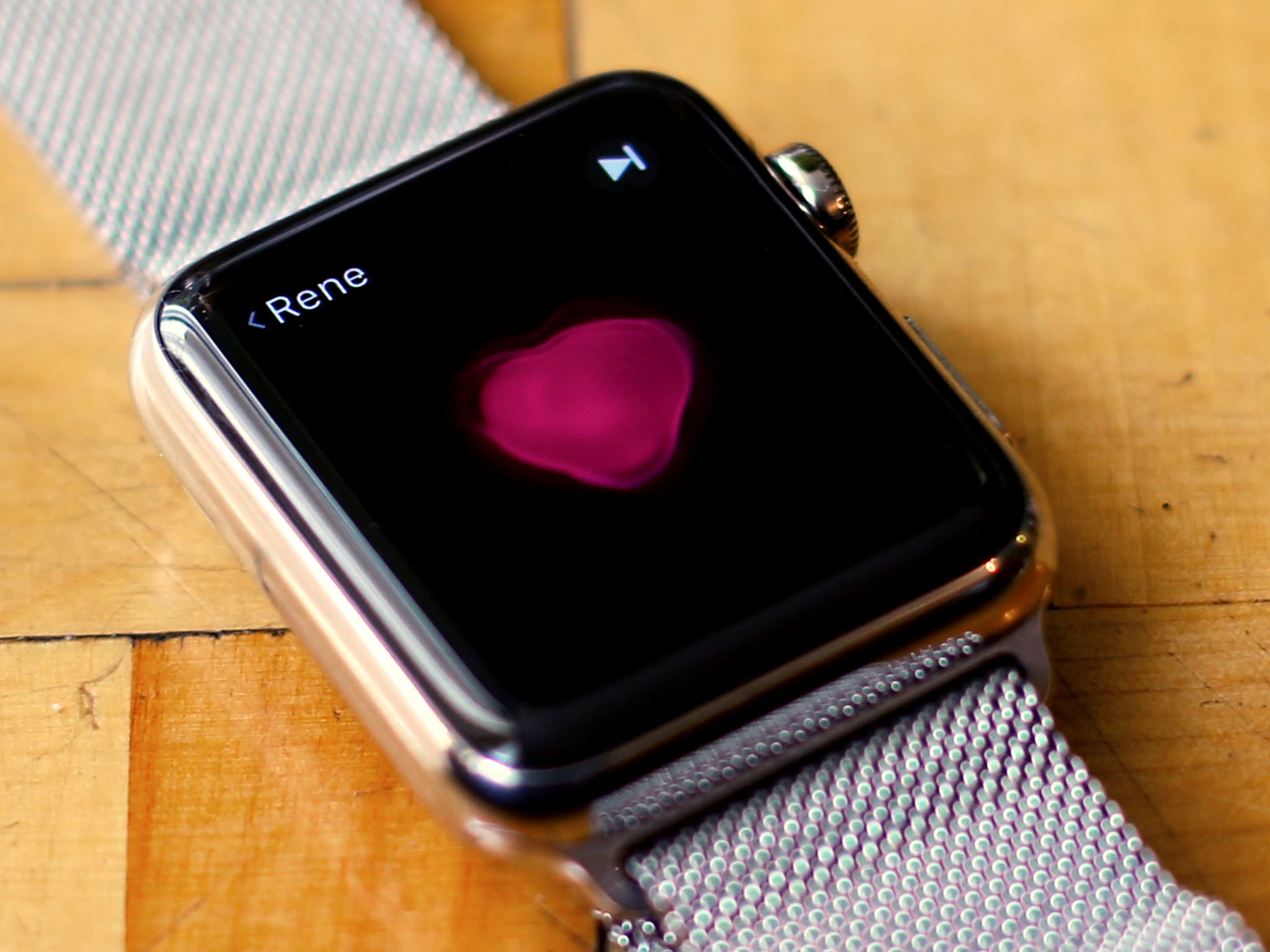Stanford Medicine publishes paper on its Apple Watch Heart Study

iMore offers spot-on advice and guidance from our team of experts, with decades of Apple device experience to lean on. Learn more with iMore!
You are now subscribed
Your newsletter sign-up was successful
What you need to know
- Stanford Medicine has published a paper based on the results of its Apple Watch Heart Study.
- Over 400,000 people took part, 0.5% of whom received a notification about an irregular pulse.
- Of those notified, 34% were found to have atrial fibrillation in subsequent ECG readings.
Stanford has published a paper analyzing the results of its Apple Watch Heart Study, in which over 400,00 people took part.
Apple announced its Apple Heart Study back in November of 2017, in which it stated it would collect data on irregular heart rhythms using Apple Watch's heart rate sensor. Everyone who received a notification about an irregular heart rhythm was offered an electrocardiogram patch and a free consultation with a study doctor.
In March of this year, Stanford Medicine announced the results of the study. Of the 400,000 people who took part, 0.5% received a notification about an irregular heart rhythm. A new paper published November 14 in The New England Journal of Medicine titled 'Large-Scale Assessment of a Smartwatch to Identify Atrial Fibrillation', outlines the specific findings of the study.
A brief description of the study states:
Participants without atrial fibrillation (as reported by the participants themselves) used a smartphone (Apple iPhone) app to consent to monitoring. If a smartwatch-based irregular pulse notification algorithm identified possible atrial fibrillation, a telemedicine visit was initiated and an electrocardiography (ECG) patch was mailed to the participant, to be worn for up to 7 days. Surveys were administered 90 days after notification of the irregular pulse and at the end of the study. The main objectives were to estimate the proportion of notified participants with atrial fibrillation shown on an ECG patch and the positive predictive value of irregular pulse intervals with a targeted confidence interval width of 0.10.
Exactly 419,297 people took part in the study over the course of 8 months. On average they were monitored for 117 days, and in that time 2161 (0.52%) people received notifications of an irregular pulse. 450 participants returned ECG patches with data that could be analyzed. 34% of those notified were found to have atrial fibrillation on subsequent ECG patch readings, however, 84% of the notifications were concordant with the condition. It seems that a lot of the atrial fibrillation picked up by Apple Watch was early stage, such that it wasn't frequent enough to be picked up by the ECG patch, which explains the disparity between confirmed cases of the condition and results concordant with it.
As CNBC reports the results of the study are promising. It does, however, note that the medical community is not particularly well equipped to treat the condition when detected in younger patients:
So there's a concern among heart doctors that while Apple Watch might identify lots of people who truly have atrial fibrillation, the medical community won't know how to treat them. And that's especially true with the young people, or those who have the condition in the earliest stages and don't have many other risk factors."We just don't understand atrial fibrillation well in the 35-year-old, otherwise healthy person," said Jeff Wessler, a cardiologist based in New York, who is also the founder of the Heartbeat cardiology clinics.
Not only that, the report also states that the medical community is struggling to treat the condition in patients it already knows about:
iMore offers spot-on advice and guidance from our team of experts, with decades of Apple device experience to lean on. Learn more with iMore!
Another potential problem with finding more people with atrial fibrillation is that the medical system is still not properly treating all the folks who are known to be at high risk. Some patients don't want to take the blood thinners, and some doctors are still cautious about prescribing them or aren't correctly characterizing the risks."Too many people in the study and in many clinics with atrial fibrillation aren't doing much or anything about it," notes Venk Murthy, a cardiologist at the University of Michigan Frankel Cardiovascular Center.In other words, doctors aren't yet sufficiently treating the population with atrial fibrillation, let alone a new group that might be identified with a consumer device like Apple Watch.
The conclusion itself notes that the study provides a foundation for large-scale studies into whether conditions like atrial fibrillation can be reliably assessed with user-owned devices. So whilst the results are promising at this stage, increased detection of atrial fibrillation thanks to devices like Apple Watch may not necessarily lead to a proportional increase in treatment for the condition. That's because the medical community is already struggling to treat the patients it has, and it because it might not be able to help many of the new ones picked up by Apple Watch.

Stephen Warwick has written about Apple for five years at iMore and previously elsewhere. He covers all of iMore's latest breaking news regarding all of Apple's products and services, both hardware and software. Stephen has interviewed industry experts in a range of fields including finance, litigation, security, and more. He also specializes in curating and reviewing audio hardware and has experience beyond journalism in sound engineering, production, and design.
Before becoming a writer Stephen studied Ancient History at University and also worked at Apple for more than two years. Stephen is also a host on the iMore show, a weekly podcast recorded live that discusses the latest in breaking Apple news, as well as featuring fun trivia about all things Apple. Follow him on Twitter @stephenwarwick9
